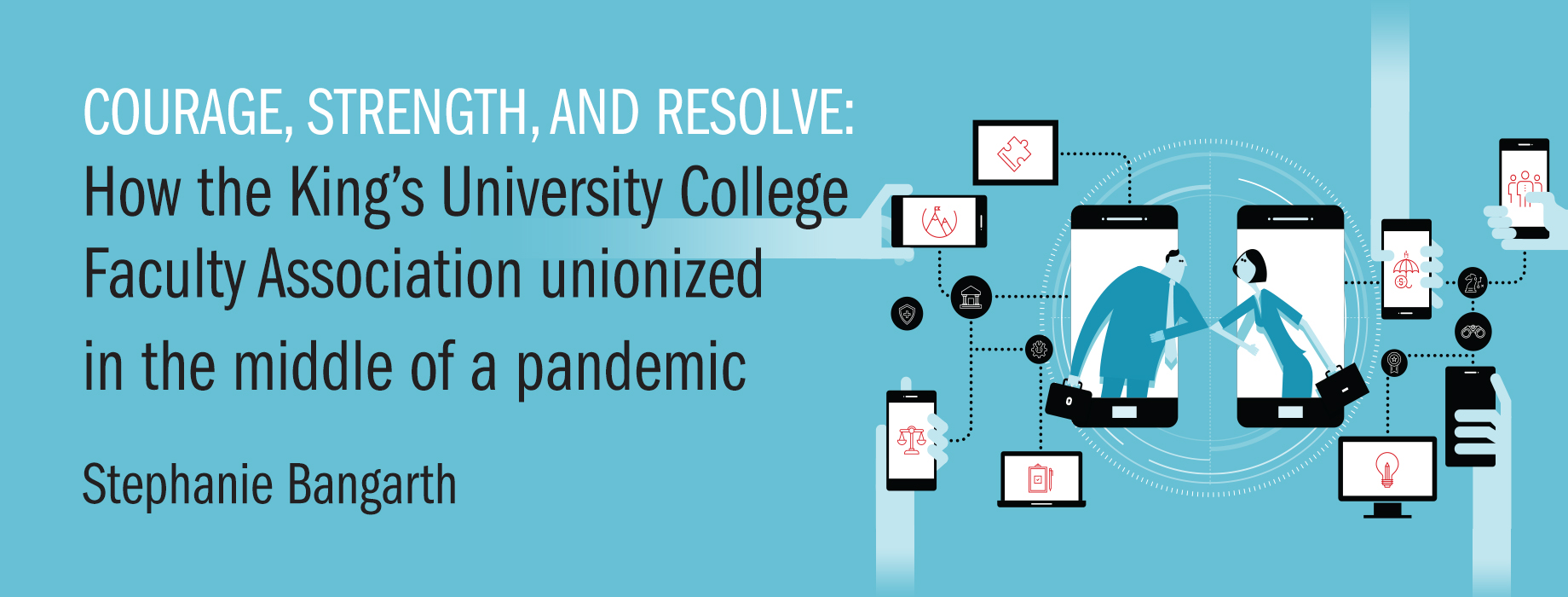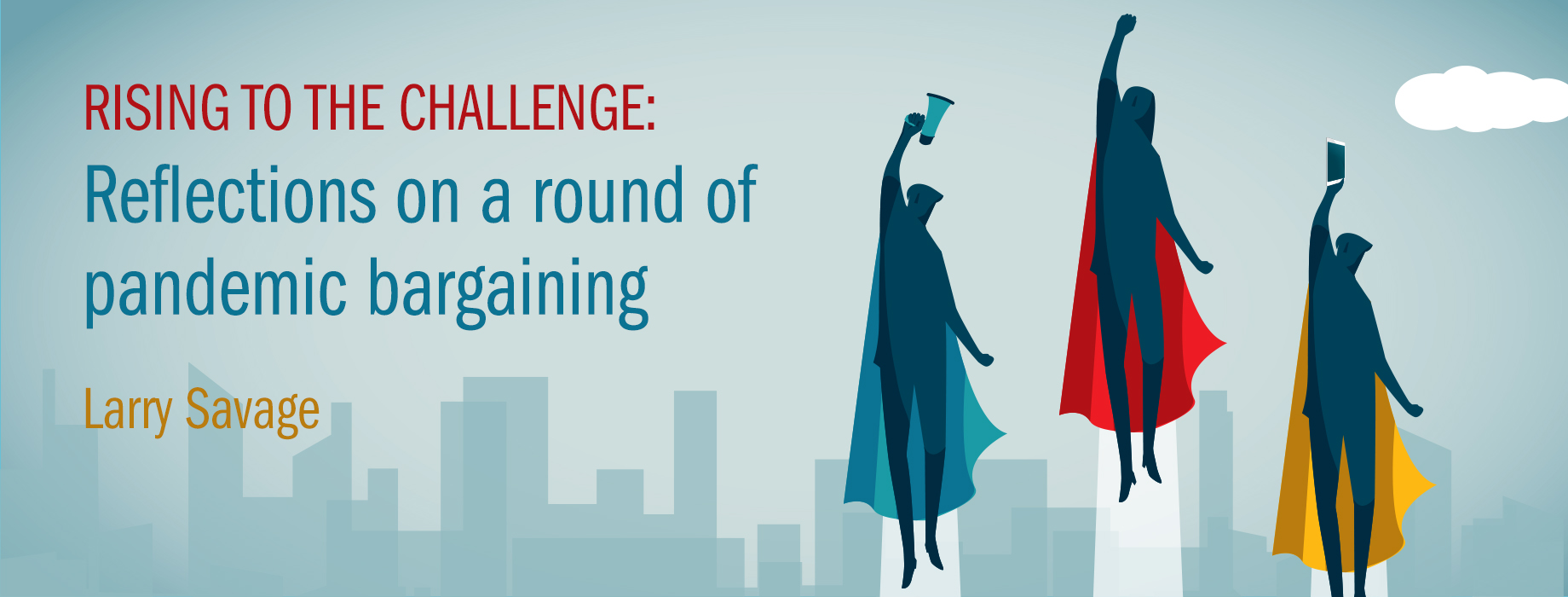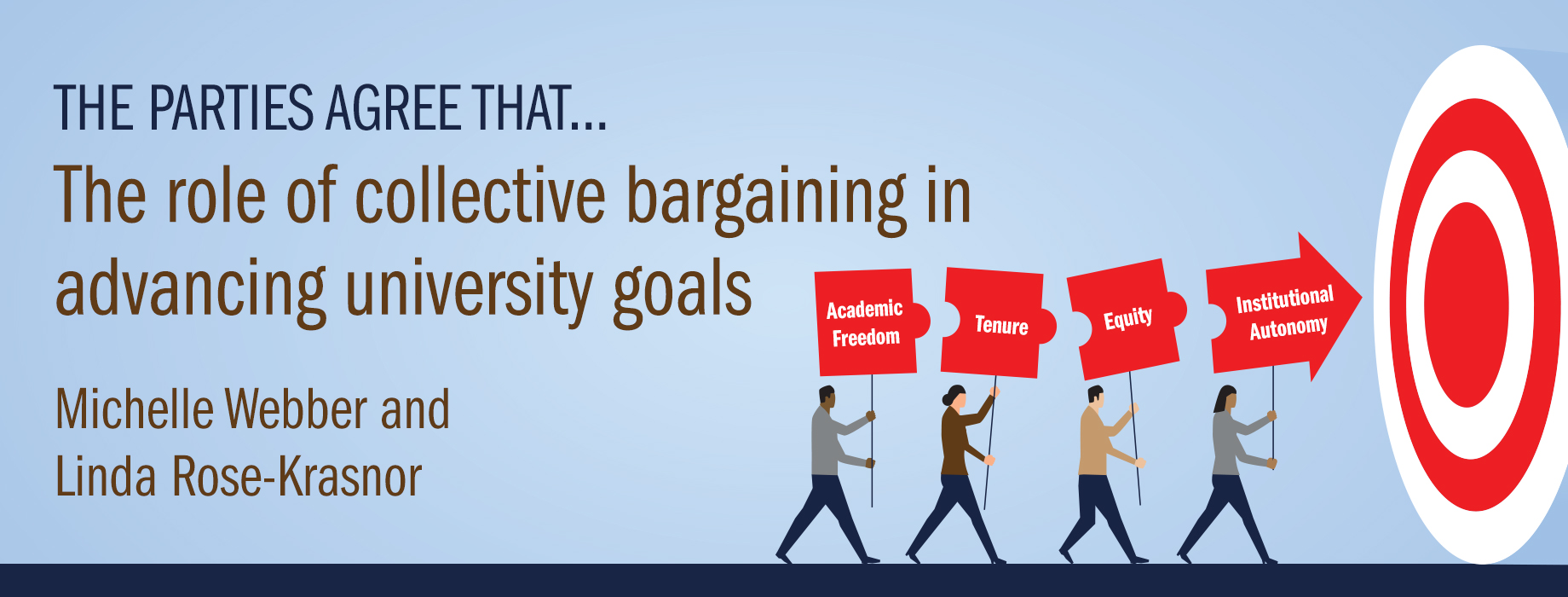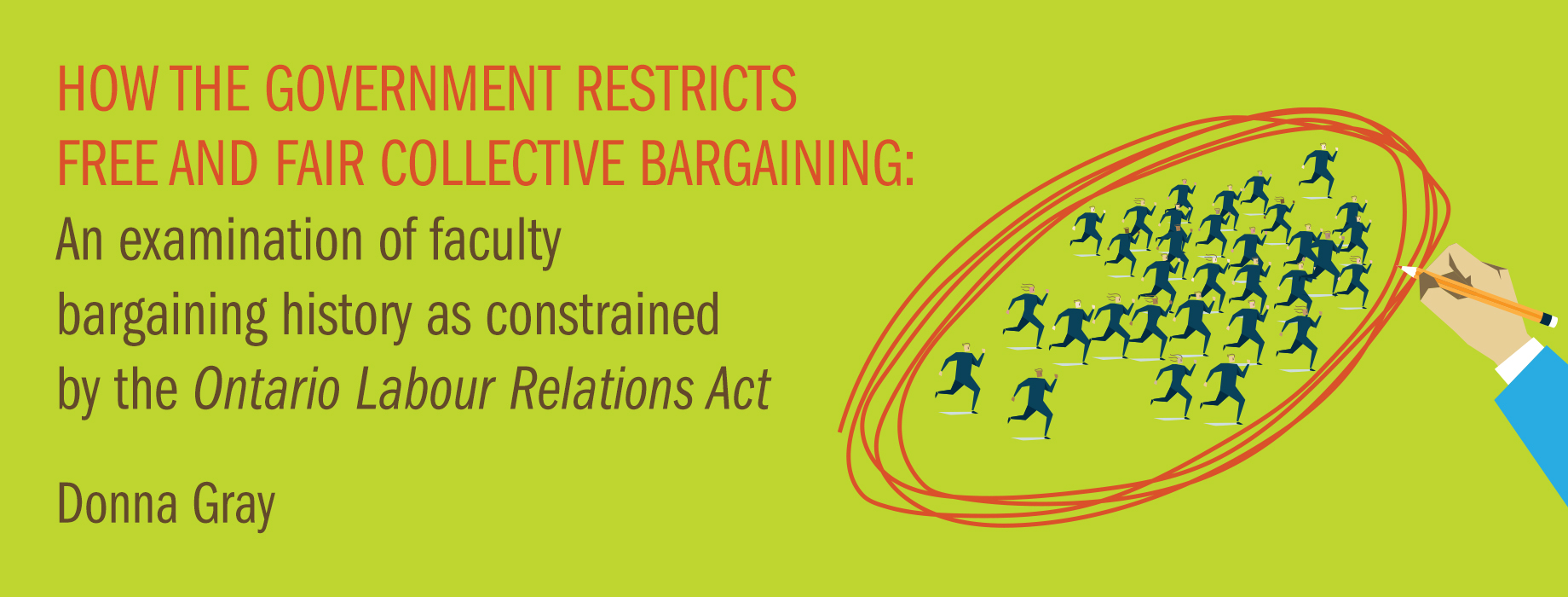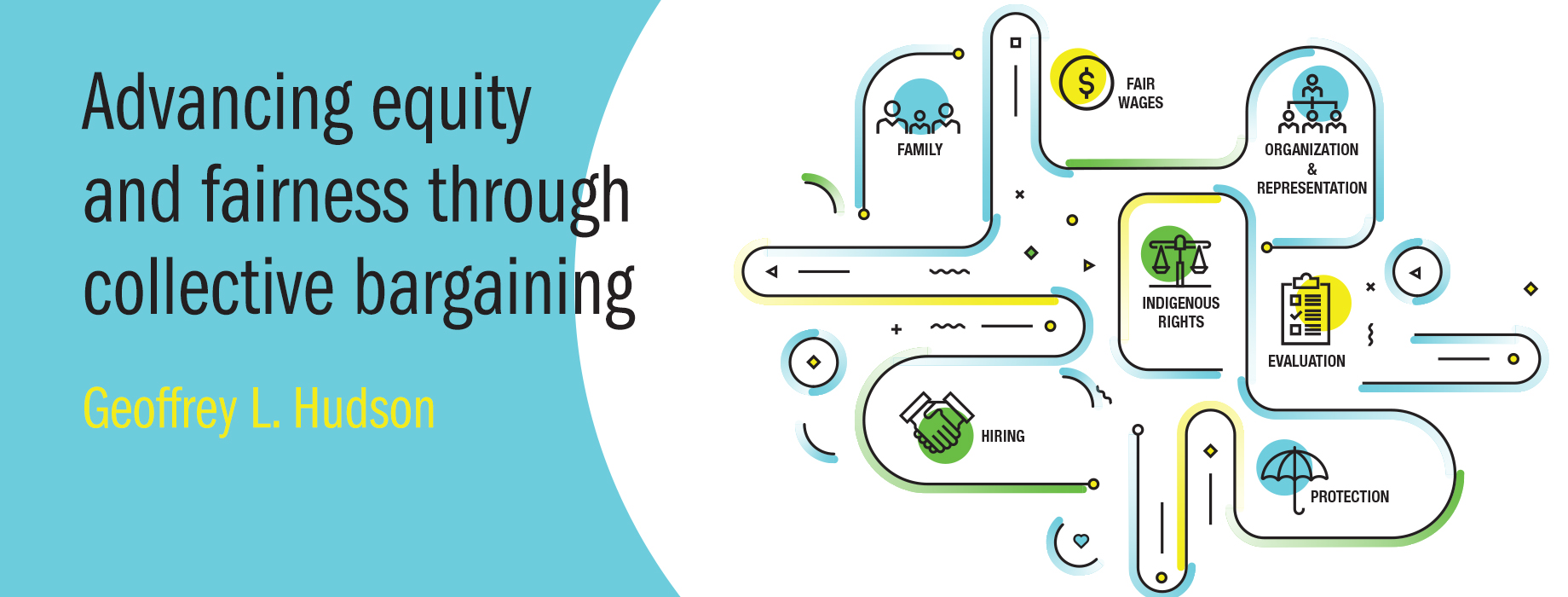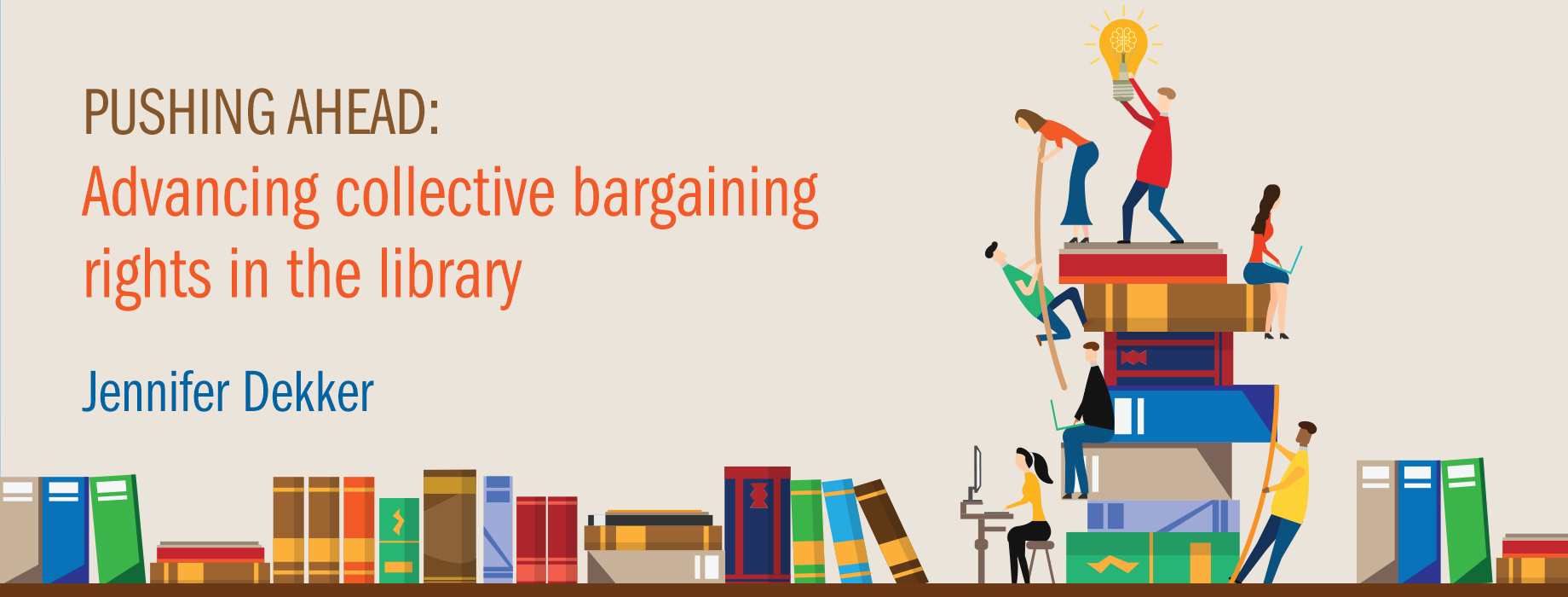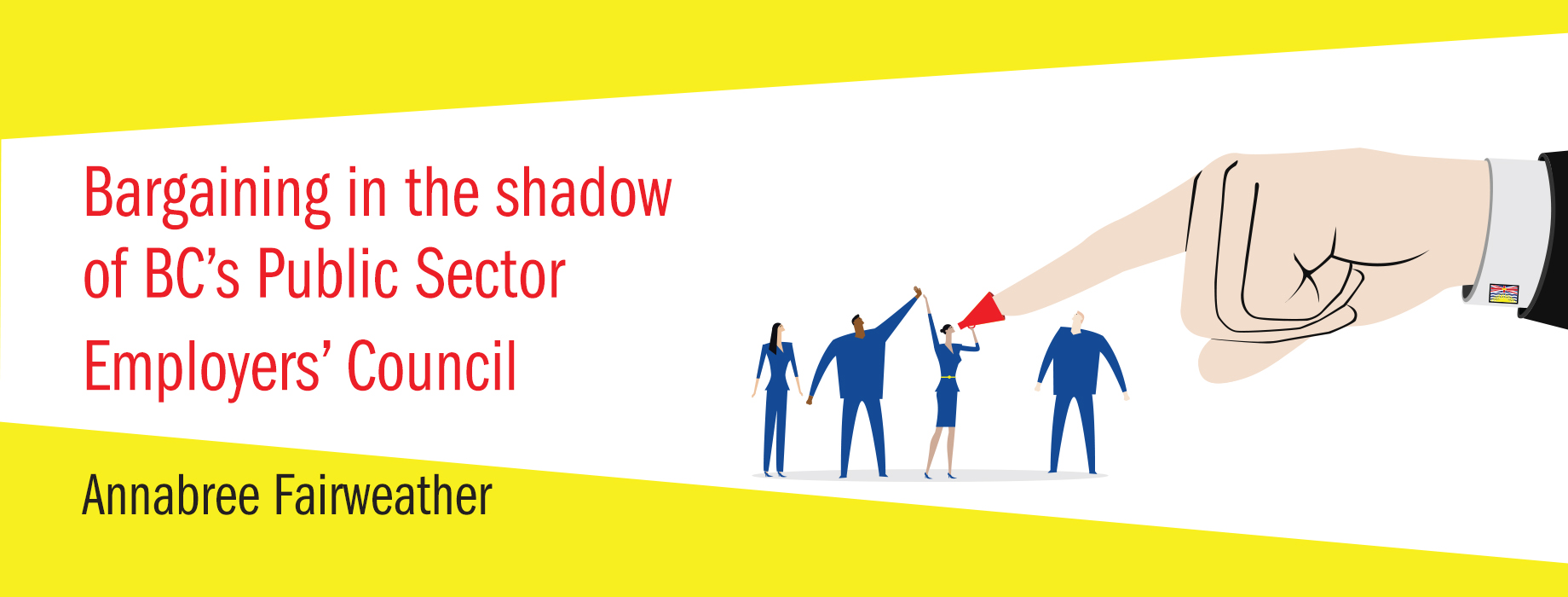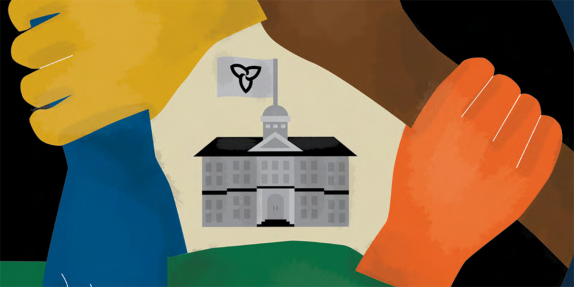
The latest issue of Academic Matters explores how collective negotiation has helped to ensure that the principles of the university are upheld and that academic staff are treated and compensated fairly. In the shadow of COVID-19, it is through this process that faculty associations are working to protect their members so that they can effectively carry on teaching, research, and librarianship during the pandemic. Read the issue for free online.
Editorial Matters: The collective challenges of COVID-19
By Ben Lewis, Editor-in-Chief
“This has been a challenging year. We were just putting the final touches on this issue of Academic Matters when the COVID-19 pandemic swept through Canada. A few final tweaks and the journal would have been on its way to campus. Except that, suddenly…”
Courage, strength, and resolve: How the King’s University College Faculty Association unionized in the middle of a pandemic
By Stephanie Bangarth, King’s University College Faculty Association
Facing a global health pandemic and an uncooperative administration, the King’s University College Faculty Association decided it was time to unionize. Now they’re stronger than ever.
Rising to the challenge: Reflections on a round of pandemic bargaining
By Larry Savage, Brock University
Bargaining is an intensive and complex process during the best of times, but what happened when the Brock University Faculty Association found itself bargaining a new collective agreement in the middle of a pandemic?
The parties agree that… The role of collective bargaining in advancing university goals
By Michelle Webber and Linda Rose-Krasnor, Brock University
Universities play a vital role in society and the principles of academic freedom, tenure, equity, and institutional autonomy are foundational to their success. How are these principles defended and strengthened? Through collective bargaining.
How the government restricts free and fair collective bargaining: An examination of faculty bargaining history as constrained by the Ontario Labour Relations Act
By Donna Gray
Looking back over half a century of bargaining by university faculty and librarians, it is clear that not all academics have seen the same benefits. Is the Ontario Labour Relations Act to blame and how can the scales be rebalanced?
Advancing equity and fairness through collective bargaining
By Geoffrey L. Hudson, Northern Ontario School of Medecine
Building more equitable and diverse universities is vital, but it can be challenging. By integrating equity into their bargaining process and prioritizing it in their negotiations, the faculty, librarians, and professional staff at the Northern Ontario School of Medicine have made remarkable progress on these issues.
Pushing ahead: Advancing collective bargaining rights in the library
By Jennifer Dekker, University of Ottawa
Well-resourced libraries are core to advancing the goals of the academy and the work of faculty and students. Often overlooked due to their small numbers, what challenges do librarians and archivists face in the workplace and how can we ensure they are supported?
Bargaining in the shadow of BC’s Public Sector Employers’ Council
By Annabree Fairweather, CUFA-BC
For three decades, the wages, benefits, and language British Columbia’s faculty associations are able to negotiate have been restricted by the government. How do workers mobilize and challenge the PSEC regime and its iron grip on the province’s public-sector bargaining?
Remote education is rife with threats to student privacy
By Nir Kshetri, University of North Carolina – Greensboro
“An online “proctor” who can survey a student’s home and manipulate the mouse on their computer as the student takes an exam. A remote-learning platform that takes face scans and voiceprints of students. Virtual classrooms where strangers can pop up out of the…”
Universities enrich communities, as well as educating students – new research
By Elaine Unterhalter, UCL
“Education helps us share knowledge, develop understanding, and supports our connection with each other. As the COVID-19 pandemic has continued, governments have been preoccupied with how to re-open schools. However, there has been more doubt about universities. Discussions about the rise in COVID-19…”
How wage theft and casual work are built into Australian university business models
By Damien Cahill, University of Sydney
“The COVID crisis has exposed the destructive consequences of an over-reliance on casual labour across the economy. Australian universities provide one of the clearest examples of this. For the past two decades, universities have leaned into international student fees on the revenue side and…”





